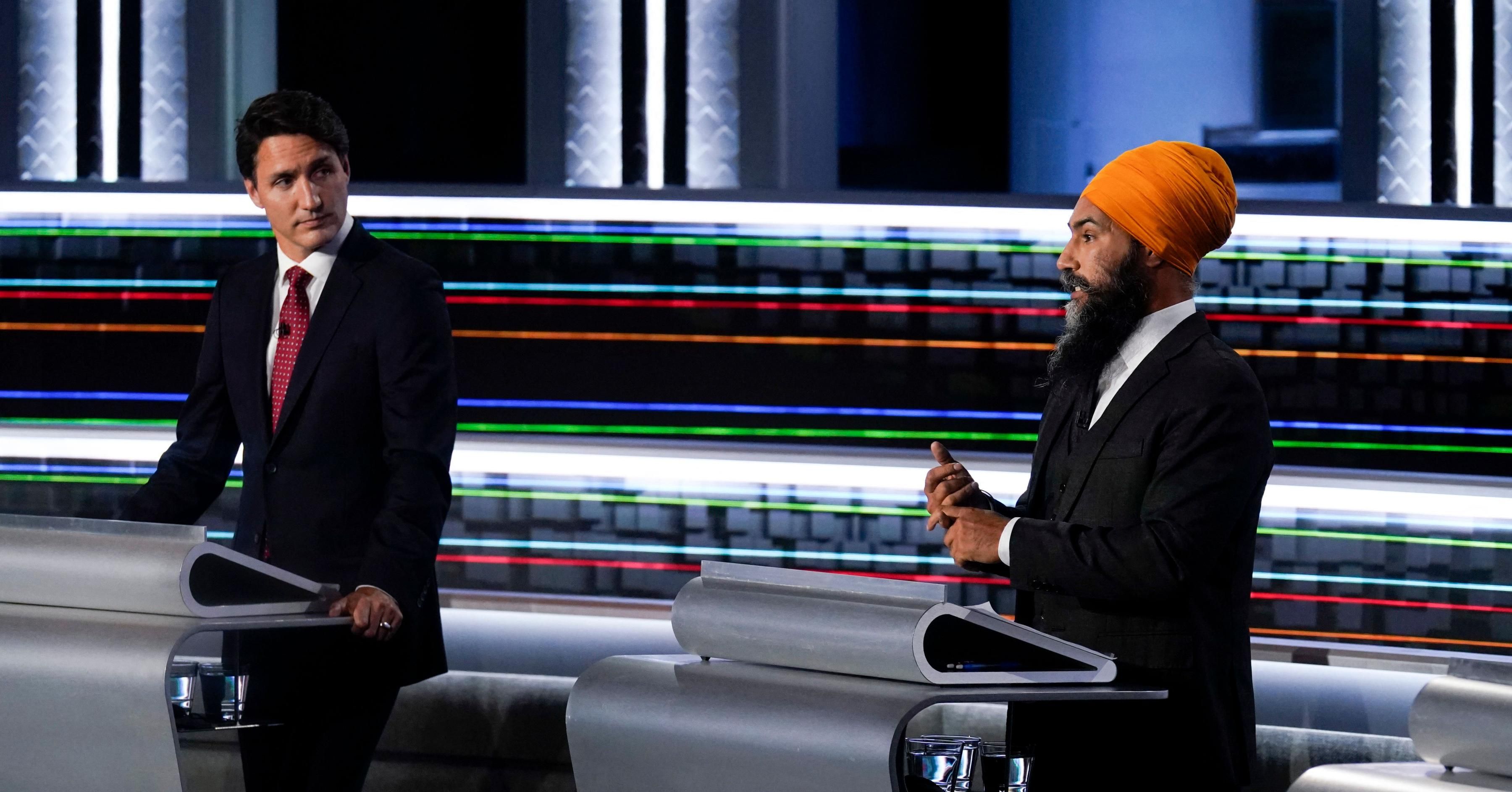'MAYBE' TECH
Here's the best 'moonshot'
green tech, according to
Bank of America
Emerging green technologies could benefit a number of sectors and be instrumental in achieving global net-zero emissions, a goal that top U.S. climate envoy John Kerry said would be the greatest market transformation “since the Industrial Revolution.”
These green tech innovations — which include carbon capture & storage (CCS), nextgen batteries, green mining, and ocean tech — were part of the 14 "moonshot" technologies laid out in a recent Bank of America note.
Other technologies consisted of 6G, brain computer interface, emotional artificial intelligence (AI), synthetic biology, immortality, bionic humans, eVTOL, wireless electricity, holograms, and the metaverse. In all, these technologies represent a market size of over $6 trillion by 2030, according to BofA
The researchers emphasized the accelerating pace of innovation and underscored how a few major disruptors have driven long-term trends in the last three decades. Just 1.5% of all stocks have created all net wealth since 1990, the report noted.
To bring any one of these future tech ideas to mainstream use requires innovation, adoption, and government support. The inverse of this is that the largest risks to these technologies are delayed scientific and technological development, prohibitive costs, and government regulation that limits their applicability.
Carbon capture and storage
Carbon capture and storage (CCS) reached a major milestone recently when the world's largest facility for removing carbon directly from the air began operating in Iceland.
CCS will likely play a pivotal role in drawing down greenhouse gas emissions. In fact, the U.N.'s body for assessing climate change uses carbon capture in all of its modeled pathways to limit global warming to 1.5°C. Nations that continue to fall short of their climate targets early on may need to rely increasingly on carbon removal in the second half of the century.
By 2030, according to the BofA report, "annual capex for CCS could reach approximately $25 billion or equivalent of $100 billion of cumulative investments. By 2040/2050, there could be $1 trillion in cumulative investments."
For the past 40 years, post-combustion carbon capture has been the most widely used carbon removal technology. But filtering out carbon dioxide from the atmosphere after it has been emitted has proven to be far more costly and energy-intensive than preemptively reducing emissions through renewable energy sources, which has made the technology somewhat controversial.
Here's how it works: At emission sources, such as power plants or steel-making plants, gases from combustion pass by a chemical solution that selectively filters out carbon dioxide before it reaches the atmosphere. When the chemical sponge is saturated, the application of heat releases and compresses the carbon dioxide into a liquid where it can be stored, oftentimes deep underground in saline aquifers or depleted oil reservoirs. And after collecting up to 90% of carbon dioxide from power and industrial plants, alternative uses for carbon dioxide are being developed, such as fuel, fertilizer, enhanced oil recovery, and even carbonating beverages.
The upside of carbon capture and storage as a climate solution and market opportunity is that it has bipartisan policy support. Sen. Joe Manchin (D-WV), a key vote needed to pass the bipartisan infrastructure and $3.5 trillion reconciliation bills, expressed support for CCS. And proposals to expand tax credits and financing for CCS have already passed the Senate as part of the infrastructure plan.
Additionally, CCS has received significant buy-in from major oil companies like ExxonMobil (XOM) that face pressure to transform their businesses away from fossil fuels.
That said, an over-reliance on CCS risks negating emissions reductions should it give fossil fuel companies license to continue pouring planet-warming emissions into the air with coal, oil, and gas projects.
Nextgen batteries
In the short run, battery improvements could increase "utility and applicability" for consumer electronics and mobility, BofA analysts noted, and in the long run, utility-scale batteries could meet higher power and longer duration needs to power entire energy grids.
Although promises of battery breakthroughs have fizzled in the past, "rising demand, investment and the urgent need to meet climate action goals could accelerate feedback loops between cost reduction, energy density improvement and better-value propositions," the report noted.
The key innovations for the next generation of battery technology involve advanced lithium-ion chemistry, material switching, solid-state batteries, batteries as structures, supercapacitors, and large-scale future energy storage. Solving challenges that current batteries face in one area, like longevity, often comes with trade-offs in other areas, like weight or size.
The growing adoption of electric vehicles, in particular, has generated demand for battery improvements, especially for lithium-ion batteries. The demand for EV batteries, for instance, is set to grow 28 times 2020 levels by 2030, according to the BofA APAC EV Battery Team, and the market size for EV batteries is expected to grow from $21 billion in 2020 to $354 billion by 2030.
In addition to advancing battery performance, scientists and engineers are working to find ways to make batteries with more abundant materials or to recycle metals in order to reduce the destructive environmental impacts of mining.
Electric vehicles and their batteries require more minerals than their combustion engine counterparts, and the demand for rare minerals will increase with growth of EV market share. For instance, between 2020 and 2040, the International Energy Agency expects demand for nickel and lithium to grow by 40 times.
Green mining
Advances in green mining aim to facilitate the production of batteries and other future tech that will enable the green transition. As the BofA analysts wrote, “shifting from a carbon-intensive economy means becoming a metal-intensive one.”
Yet, when it comes to mining the massive amounts of raw materials needed, the environmental costs and costs to the communities near mining operations cannot be ignored. This has led to a search for alternative means of extracting metals and minerals, from deep sea mining, agromining, wastewater mining, and asteroid mining.
Overall, the green mining market size could be worth $12.9 billion by 2024, according to Bloomberg and MarketsandMarkets estimates. (The market size in 2019 was $9 billion.)
The extent to which deep sea mining is truly 'green' remains up for debate. Scientists and conservationists have opposed deep sea mining on the grounds that it simply externalizes the environmental costs to the ocean and marine life.
Many of the other mining technologies are in the very early phases of research. Small-scale pilot sites in Malaysia have begun testing the efficacy of agromining, for example, which promises to grow metals on trees. Agromining harnesses certain plants' innate ability to soak up high concentrations of minerals from the soil.
Other nascent green mining technologies like wastewater mining are developing ways to extract lithium from briny wastewater discharged from desalinization plants. Currently, the process can take up to two years and yields less than 50% of the lithium from brines.
And if robots mining faraway asteroids for minerals seems far-fetched, that hasn’t stopped NASA and a burgeoning deep space industry from exploring how to mine the asteroid belt, which has an estimated mineral wealth amount of $700 quintillion, according to the BofA report. However, as with anything space-related, this comes with enormous investment to retrieve and return minerals.
Ocean tech
The world's oceans support numerous industries and jobs. And when it comes to renewable energy, “oceans are the world’s largest untapped source of energy,” BofA noted.
As the population grows worldwide, so too will the demand for the ocean’s resources. The output of the blue economy could reach $3 trillion by 2030, or the equivalent of Germany’s economy in 2010, according to BofA.
However, marine systems will continue to be stressed by climate change, which could impact the development of ocean industries and create feedback loops of worsening weather effects. That's why ocean tech focuses on preserving ocean health as a key priority for new technology and products.
One problem that ocean tech hopes to solve is feeding the growing population. By 2030, the world’s consumption of fish is expected to increase by 18% compared to 2018 levels. Developments in marine aquaculture — the farming of fish in the open ocean or on-shore tanks — could restore marine ecosystems while providing more sustainable seafood for consumption.
Some marine aquaculture startups have not only developed ways of farming seaweed and shellfish, they are researching ways to create new markets for these products beyond health foods for climatarians. For instance, biodegradable seaweed packaging may come to replace plastic packaging.
Another ocean tech industry, precision fishing, uses advanced analytics to observe and measure the oceans to avoid overfishing. The BofA analysts stated that the use of these tools can help provide six times more food in a sustainable manner, “so we can have our fish and eat them too.”
Companies such as Google (GOOG) and Microsoft (MSFT) have already begun investing in ocean analytics and surveillance.
And the oceans could be a core source of renewable energy as new technologies unlock the energy potential behind tides, currents, waves, solar, salinity, thermal energy, and winds. Europe has been at the forefront of off-shore renewable installation, according to IRENA, with 70% of the world's offshore capacity located in the North Sea and Atlantic Ocean.
And ocean renewable energy projects are likely to see a boost from more ambitious climate targets, as is the case with the EU Green Deal, which aims for 60 GW of offshore wind capacity by 2030 and 300 GW by 2050.
Grace is an assistant editor for Yahoo Finance and a UX writer for Yahoo products.
















